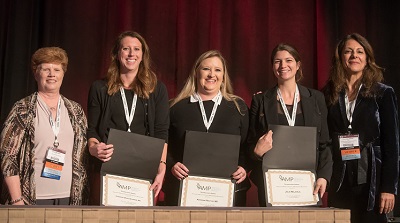Laboratory Careers in Molecular Pathology
Discover the wide range of career paths available in molecular diagnostics — from lab assistants and technologists to medical directors and laboratory managers. This page outlines key roles, training and certification options, licensure details, and helpful tools like study guides, flashcards and practice exams.
Types of Careers

Lab Assistants and Technicians
Lab assistants and technicians help process and prepare samples for molecular testing. Some can collect blood because of training in phlebotomy, but most molecular labs have lab assistants who prepare samples and may help monitor and maintain instruments while they are running. They might also perform tasks like reagent preparation, stocking, and ordering supplies. Lab technicians may perform additional tasks like nucleic acid extraction and pre-analytical test setup.
Technologists
Cytogenetic: Cytogenetic technologists or “cyto techs” perform specialized tests that visualize chromosomes. This involves preparing metaphase slides from samples such as blood, bone marrow, or cultured cells, and then “freezing” cells in metaphase so their condensed chromosomes can be examined. Cyto techs align chromosomes to detect macroscopic structural changes linked to diseases.
Molecular: Molecular Technologists perform tests that examine RNA and DNA, ranging from targeted gene testing to analysis of entire genomes. Some labs focus on human samples, while others test for microorganisms.
Clinical Laboratory Scientists
In California, technologists may be licensed as Clinical Genetic Molecular Biologists or Clinical Cytogeneticist Scientists. Learn more from the California Department of Public Health.
Medical Laboratory Scientists (MLS)
MLS professionals are licensed to practice across various laboratory disciplines including Blood Banking, Urinalysis, Chemistry, Histology, Immunology, and Microbiology.
Supervisors, Managers and Administrative Directors
These roles often require both technical experience and a Master’s degree. Responsibilities include operations, staffing, compliance, and sometimes benchwork. Larger labs may divide oversight between multiple managers (e.g., operations, quality, education). Some directors may oversee both research and clinical labs.
Medical Directors
Typically MDs or PhDs with advanced training in genetics or molecular diagnostics. Medical directors are board-certified in their field and must meet state-specific eligibility requirements.
Certification Routes
- Certification for Molecular Technologists: Options and Opportunities (Dr. Sudan Beck)
- ASCP Board of Certification
- AMT Molecular Certification
- U.S. Certification Procedures (PDF)
Training Options
- On-the-job training
- Bachelor’s or master’s degree
- Certification
Note: Not all programs meet certification eligibility. Research thoroughly before enrolling.
Start here: Use the NAACLS program database.
Types of Certification
- Molecular Biologist (MB): ASCP Eligibility Assistant
- Molecular Diagnostics Technologist [MDT(AMT)]: AMT Eligibility Assistant
- Medical Laboratory Scientist (MLS): ASCP Eligibility Assistant
- Specialist in Molecular Biology (SMB): ASCP Eligibility Assistant
Licensure Information
State Licensure: Check eligibility by state (Click on the "State Licensure" tab)
.jpg)
Tools
Micro-Learning Modules
Certification for Molecular Technologists — Free presentation by Dr. Susan Beck from AMP 2020.
Study Guides
Practice Exams
- MB(ASCP) & SMB(ASCP) Practice Exams — Offered by ASCP and AAB
Recommended Books

Maintaining Certification
- AMPEDTM — ASCP-accredited continuing education, some free
- AACC — On-demand molecular and quality courses
- ASM — Molecular topics in microbiology
- AGT — Free/member webinars for molecular topics
- ASCP — CE packages by discipline
AMP Technologist Community
Become a Member: Join now to access discussions, resources and exclusive education content.
Quick Links

Infographic: “Where can laboratory science take you?”
Discover the diverse and rewarding career paths available within medical laboratory science and pathology. Download PDF.

Infographic: “How do I start or accelerate my career in the laboratory?”
Learn how laboratory professionals contribute to patient care and join the team that provides up to 70% of medical diagnoses. Download PDF.















